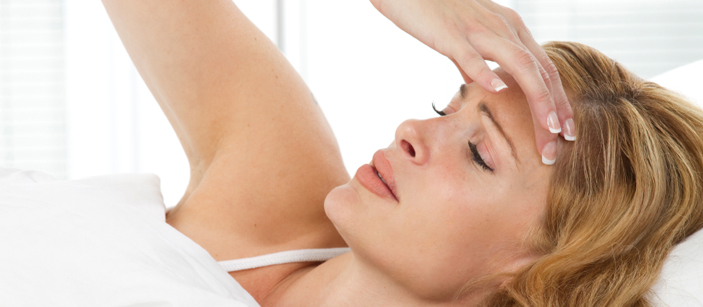Sleep related movement disorders are characterized by relatively simple, usually stereotyped movements that disturb sleep. Patients with these disorders experience episodic nocturnal movements, sensations, or behaviors during sleep or during night-time awakenings.
The following is a brief description of the more common sleep related movement disorders.
Restless Legs Syndrome (RLS) is a neurological condition that is characterized by a strong, nearly irresistible urge to move the legs. This urge often comes with other uneasy feelings deep inside the legs. Sufferers can have a very hard time trying to explain what this feels like. The sensation could be described as gnawing, creeping, burning, prickling, itching or tingling. It can even be more extreme and feel painful. These feelings, along with the urge to move, are made worse by rest. Lying or sitting still can be very difficult. Temporary relief is found when you walk or move the legs. This relief tends to come right away and will persist as long as the motor activity continues. Symptoms are usually worse in the evening, especially when lying down. RLS can also cause difficulty in falling or staying asleep which can be one of the chief complaints of the syndrome.
Periodic Limb Movements of Sleep (PLMS) is characterized by simple, repetitive jerks that occur every 20 to 30 seconds on and off throughout the night. More than 80% of people who have RLS also have PLMS. These episodes do not involve a change in body position, stretching a muscle, or a cramp. Instead, the movements tend to involve the tightening or flexing of a muscle, and occur most often in the lower legs. While PLMS does not usually keep someone from falling asleep, it severely disrupts sleep throughout the night. This sleep deprivation causes fatigue during the day, seriously impacting a person’s work, relationships, and mental health.
Sleep Related Leg Cramps are sudden and intense feelings of pain in the leg or foot and are sometimes confused with RLS. The pain is caused when a muscle contracts and tightens. These cramps are often referred to as a “charley horse”. The cramps occur without you being able to control them. They may happen while you are still awake or after you are asleep. They normally begin very suddenly. The muscle cramps can last for a few seconds or several minutes. They end as suddenly as they begin, causing pain and disturbing sleep.
Sleep Related Bruxism, also known as nocturnal tooth grinding, is the medical term for grinding and clenching teeth during sleep. While it is common for the jaw to contract while a person sleeps, if these contractions become too strong, the teeth will grind and become worn down causing serious dental damage, facial pain and disturbed sleep. Signs of bruxism include tooth pain, jaw muscle pain, mouth and facial pain, limited jaw movement, damaged or worn teeth, sore gums and headaches. In severe cases, hundreds of events can occur during the night while in milder cases, the grinding may vary from night to night.



